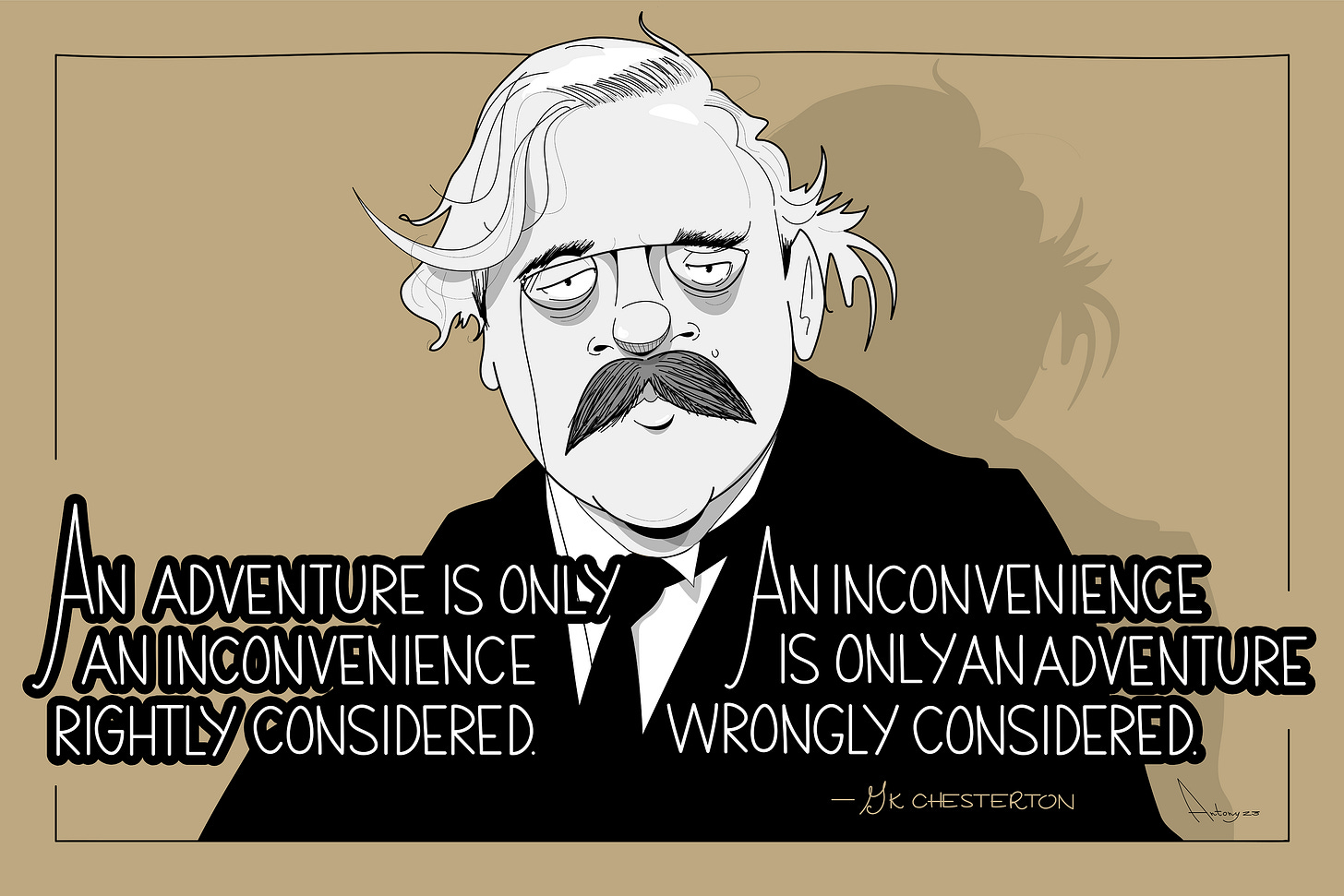The Wit's Guide to Misery
Or, the floor just below that

Why are you so miserable? And by you, I mean the 69% of my readers who voted for misery over happiness last week. It’s proof that misery loves company, and that if you laugh, the world won’t laugh with you. Sadder still, that proof is statistically insignificant, just as each of us are in the grand sweep of time. I can only conclude that there’s something cheering in thinking about misery — or choosing to make me think about it.
“Happiness, n.: An agreeable sensation arising from contemplating the misery of another.”
— Ambrose Bierce
One advantage of taking pleasure in other people’s misery is that it’s an infinitely renewable resource. Martin Amis recounts the “black, three-ply irony” that Christopher Hitchens deployed in a post-tennis conversation with Robert Jay Lifton, a psychiatrist who studied the horrors of war:
Elatedly toweling himself down, Bob said, “You know, there are so few areas of transcendence left to us. Sports. Sex. Art...”
“Don’t forget the miseries of others,” said Christopher. “Don’t forget the languid contemplation of the miseries of others.”
But what are those miserable other people on about? Maybe they don’t even know. In his book Bullshit Jobs, the anthropologist David Graeber categorizes the different degrees of misery that meaningless employment can cause. There’s the misery of ambiguity, when you don’t know what you’re supposed to be doing, and the misery of cause, when you know what you’re doing is effectively useless. But the best/worst is “the misery of not feeling entitled to one’s misery,” because you’re being well compensated to sit in a heated office and, in between free snacks, waste your life.
“Misery is almost always the result of thinking.”
— Joseph Joubert
Perhaps the world’s most glamorous people know something about misery. (A big perhaps, but work with me here.) That’s the unspoken premise of Vanity Fair’s long-running riff on The Proust Questionnaire, the dinner-party game that, among other things, asks respondents to define the lowest depths of misery. The death of a loved one is a gimme, as is wasting time. More exquisitely miserable are answers like Johnny Cash’s:
“A week on amphetamines, and coming down.”
Or Gore Vidal’s nadir:
“A mirror.”
The best response is the one that takes the metaphor and drops it: The lowest depth of misery, per Tom Waits, is “the floor just below that.”
“Read too long and too much today, resulting in a severe attack of the Miseries.”
— Samuel Marchbanks
A key contributor to human misery, two out of two Great Wits agree, is reading. Marchbanks, the alter ego of Robertson Davies, argued that “reading is a form of indulgence, like eating and smoking. Some men smoke heavily and some drink heavily; I read heavily, and sometimes I have the most awful hangovers.” And in her short story “The Little Hours,” Dorothy Parker’s insomniac alter ego concurred. “God, the bitter misery that reading works in this world!” she wrote. “Everybody knows that — everybody who is everybody. All the best minds have been off reading for years.”
As detailed in The Wit’s Guide to Reading, these days humans do most of our text-parsing on smartphones — and as Noah Smith of Bloomberg just explained in his data-rich newsletter, those devices are almost certainly at the root of our misery.
“O misery, misery, mumble and moan!
Someone invented the telephone.”
— Ogden Nash
To put us out of our shared misery, then, put down your phone and consider Franz Liszt’s response when asked why he didn’t keep a diary:
“To live one’s life is hard enough. Why write down all the misery? It would resemble nothing more than the inventory of a torture chamber.”
Look! A Reason to be Cheerful!
Dammit, I just told you to put down your phone and now I’m gonna make a sales pitch. Ah well.
Working with the brilliant caricaturist Antony Hare, I’ve chosen one of the all-time best lines for immortalization on the very first Riposte Card. This is the quotation you want to have on hand when you get a flat tire on the side of Autoroute 10 on a cold winter’s night. It’s like mental roadside assistance, and it’s cheaper than CAA! Here it is:
We’re still going back and forth on revisions, and I hope to send a finished product to the printer next week. Then my wonderful paid subscribers will receive a stack of the inaugural Riposte Cards in the mail, as well as all the terrific installments that will follow. Join the rejoinders!
Quote Vote
“Nobody really cares if you’re miserable, so you might as well be happy.”
— Cynthia Nelms
Money can’t buy happiness, but it can upgrade your miseries (see sales pitch above). To that end, let’s put on our green visors and make bank next week, whatever the hell that means.
Get Wit Quick No. 191 came across the Misery Index, a 1970s economic calculation that adds the unemployment rate to the rate of inflation to determine why the long face. Sounded dismal, tbh. My book Elements of Wit: Mastering The Art of Being Interesting works bitter misery, if that’s still your bag. Like misery, I❤️ your company!




Sounds about right
I wonder if you had listed happiness as an option for this week’s poll if we’d be more inclined to choose it after such delightful misery😊